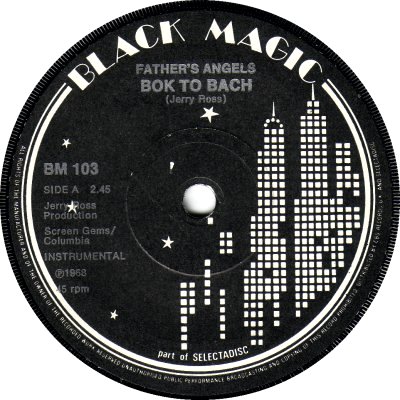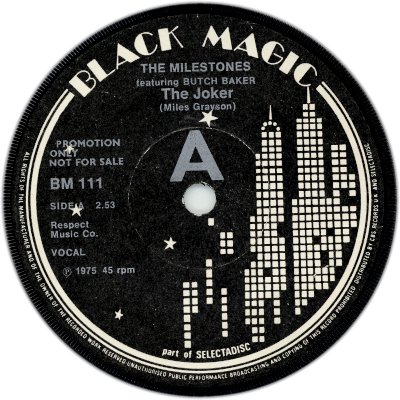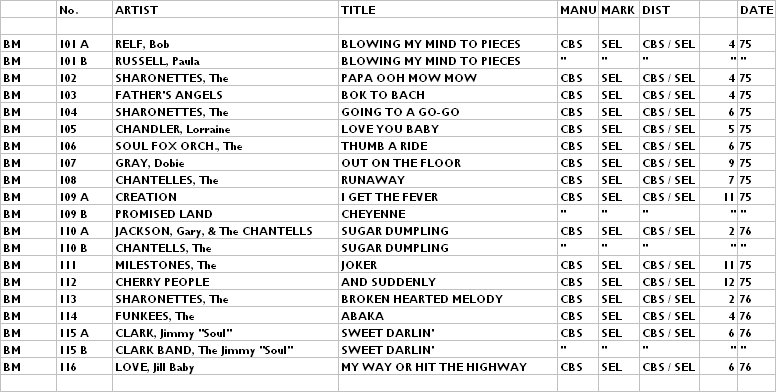

A Northern Soul / Disco label, dedicated to licensing and issuing popular American Soul singles. Black Magic was owned by Nottingham company Selectadisc, which started out in 1969 as a record shop and quickly developed as an importer and wholesaler of Soul records. In addition to those occupations it was responsible for putting out unlicensed 'bootleg' recordings on at least three labels: B.J.D., Green Light and Magic (q.v. all). Occasionally it ran into trouble for doing so. 'Music Week' of the 4th of April 1973 reported that Selectadisc had unlawfully released Homer Banks's 'Hooked By Love' and 'Gonna Fix You Good' by Little Anthony & The Imperials and had had to apologize to Liberty / United Artists and pay compensation - the sides had come out paired on a Green Light single. Exposure in the clubs led to a considerable demand for rare Soul singles, and as the originals were difficult to come by there was a flourishing trade in bootlegs. According to correspondence on the 'Soul Source' site, in addition to their own pressings Selectadisc also stocked and sold bootlegs on other people's labels, such as Soul Source, Soul Fox and Soul Galore (q.v. all).
After that rather murky start the company went into the legitimate reissue business in 1975. 'MW' of the 29th of March revealed that its new label, Black Magic, was aimed at the Disco market, and that its first three singles would be available from the 28th of March, via Selectadisc themselves or from CBS. 'MW' of the 5th of April added that Black Magic records were to be pressed and distributed by CBS, and that the material on them would be obtained from American Soul sources rather than from the UK. In passing, the article mentioned that Selectadisc had been importing Soul singles 'by the thousand' over the past five years for retail and wholesale.
Black Magic released sixteen singles, during 1975-76. The Sharonettes took it into the Top Thirty, albeit briefly, with 'Papa Oom Mow Mow' backed with an instrumental version (BM-102; 1975); their follow-up, 'Going To A Go-Go' (BM-104; 1975), again with an instrumental version on the 'B' side, only made it into the Top Fifty, even more briefly. That proved to be the company's final Chart entry. Singles had catalogue numbers in the BM-100s. One label design served throughout, promo copies being marked with a medium-sized 'A' and the appropriate text (2).



Copyright 2006 Robert Lyons.

